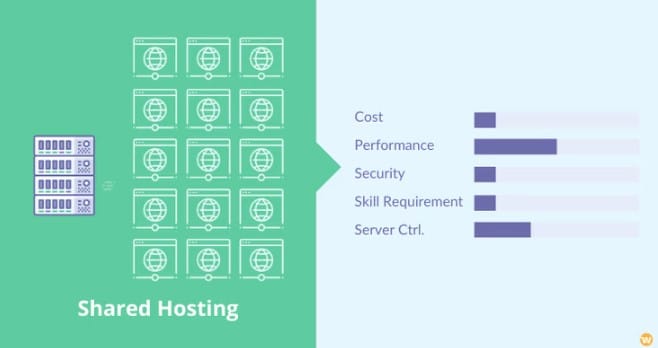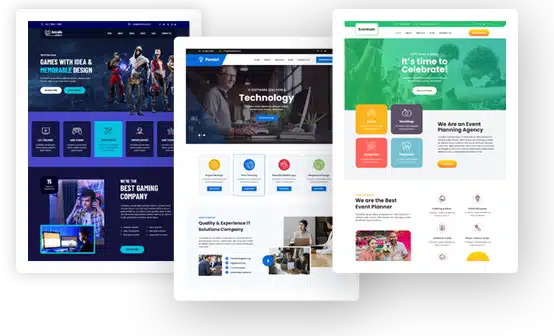Website Downtime and Tips to Prevent It

When your website can’t be accessed, or it’s unable to perform its main task for those using it, then your site is said to be down. This period of outage is known as website downtime.
Why Website Outage Matters
Your website is the face of your brand and the most important touchpoint in a customer’s interaction with your company. Website downtime poses a serious threat to your online business. It results in besmirched brand image, customer frustration and dissatisfaction, less than stellar search engine ranking, and loss of potential business. So, your number one business priority is to ensure that your website is always available.
Why Would Your Website Go Down?
There are several reasons for website downtime, including the following:
-
Server Issues
The common saying “you get what you pay for” couldn’t be more applicable with respect to hosting your website. Cheaper hosting companies are less likely to have the functionality and features your site needs and are, therefore, more likely to cause you problems with downtime. Common downtime issues caused by servers include:

Shared hosting costs less but the security level is weaker compared to other hosting plans. Source: WebhostingsecretrevealedShared servers – If you are signed up with a shared hosting service, your site will be hosted on a server shared with numerous other websites. If another site on the server monopolizes the available resources, your website can quickly be adversely affected. This is known as the bad neighbor effect or noisy neighbor effect.
Traffic surge – If your website experienced an unexpected surge in traffic, a cheap host might not have the capacity or the necessary procedures in place to handle the situation. This can cause your site to crash. Moreover, on a shared server, some hosts may temporarily suspend your service to protect other websites on the same server.
Server maintenance – Every server needs to be maintained, but a good host should take steps to minimize disruption to your site. Be sure to read the terms and conditions that apply to server maintenance before settling on a host.
How to Limit Server Issues
Server overload and other server issues are frustrating as they’re usually outside of your control and leave you dependent on your hosting provider. To minimize server issues, look for a high-quality hosting company with a good reputation. Read the reviews before signing up and pay particular attention to customer support ratings and uptime stats.
In order to run a successful and profitable online business, getting the right host for your website is essential. Ideally, select a dedicated server package where your site is the only occupant of the server.
-
Security Attacks
Various security threats can directly affect your website’s performance, even to the extent of causing an outage. These cyberattacks include:
DDoS attack – A Distributed Denial of Service (DDoS) attack is a serious attack. It involves multiple systems flooding the resources or bandwidth of your server to bring down your site.
Access control – Access page attacks are common, so having security controls in place to prevent access to your admin website login page is essential.
Software vulnerabilities – Outdated or poorly coded software can make your website vulnerable to malware and other security hacks. Always ensure you use well-coded products and keep your site updated.
Third-party integrations – The use of third-party services and integrations by website owners has become common. Although you might assume that third-party services take care of their own security, there’s always the possibility of compromise.
How to Guard Against Security Attacks
Use a quality Content Delivery Service (CDN) that will store copies of your website’s files in data centers worldwide. Content is then served to users from the server closest to them.
A properly configured CDN will go a long way to protect your website against common malicious cyber threats, including DDoS attacks, data breaches, bot abuse, and more. The use of a CDN will also result in a significant reduction of your hosting server’s load and improve your website’s speed. Most importantly, if your site does crash, your content will continue to be served to your users.
Don’t forget about password protection to prevent your passwords from getting into the hands of strangers.
-
Incompatibilities of CMS Tools
Using a Content Management System (CMS), such as Joomla, WordPress, or Drupa, to create a website is a popular option. However, although a CMS provides you with a lot of flexibility and control over your website, it is not without problems.
A common cause of downtime within a CMS happens when an update to a theme or plugin goes wrong. There are thousands of themes, plugins, extensions, and other tools available, and these are regularly updated by developers. However, despite how well-coded they are, there is no guarantee of compatibility with every website.
When you proceed to update a theme or plugin, the new version must be compatible with your version of whichever CMS you are using and the technology used by your host server. If this isn’t the case, a seemingly ordinary product update could quickly bring your website down.
How to Prevent CMS Tool Incompatibilities
Regularly backup your website, then if your site goes down, you’ll have a recent copy you can use to get your site back up and running.
-
DNS Issues
Domain Name System (DNS) refers to a network of servers that are used to translate domain names into IP addresses, enabling browsers and servers to connect. Poor DNS service can affect your website’s speed, security, and availability.
How to Prevent DNS Problems
Make sure you use a reliable DNS hosting provider. Most domain registrars and web hosts include DNS hosting in their hosting plans. However, some web hosts allow you to upgrade your DNS hosting with premium features. These can include faster servers, control over your DNS settings, advanced security, and guaranteed website availability. All of these features provide you with extra protection against website downtime.
-
Coding Errors
A bad chunk of code can disrupt your site’s performance and even take it down. However, human error is inevitable, and a simple mistake hidden in thousands of lines of code can be challenging and time-consuming to uncover.
How to Cope With Coding Issues
If a coding error compromises your website, make sure you’re alerted to the problem ASAP.
Website Downtime: Final Thoughts
A proactive approach to any issues that may cause website downtime is key to helping ensure that your website isn’t vulnerable to performance issues and cyberattacks that could adversely affect your online business. Don’t wait until your website experiences an outage—be prepared by putting measures in place to prevent it from happening in the first place.
Pui Mun Beh Author
Pui Mun Beh is a digital marketer of WebRevenue. She keeps an eye on the latest digital marketing and social media trends. She loves to travel around the world offline and online. Say hello to her at LinkedIn.

